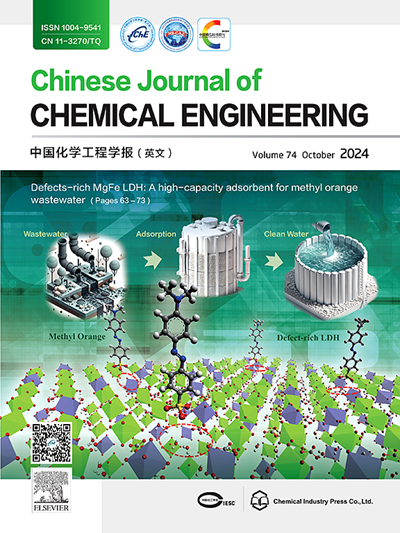A transformer-based model for predicting and analyzing light olefin yields in methanol-to-olefins process
IF 3.7
3区 工程技术
Q2 ENGINEERING, CHEMICAL
引用次数: 0
Abstract
This study introduces an innovative computational framework leveraging the transformer architecture to address a critical challenge in chemical process engineering: predicting and optimizing light olefin yields in industrial methanol-to-olefins (MTO) processes. Our approach integrates advanced machine learning techniques with chemical engineering principles to tackle the complexities of non-stationary, highly volatile production data in large-scale chemical manufacturing. The framework employs the maximal information coefficient (MIC) algorithm to analyze and select the significant variables from MTO process parameters, forming a robust dataset for model development. We implement a transformer-based time series forecasting model, enhanced through positional encoding and hyperparameter optimization, significantly improving predictive accuracy for ethylene and propylene yields. The model's interpretability is augmented by applying SHapley additive exPlanations (SHAP) to quantify and visualize the impact of reaction control variables on olefin yields, providing valuable insights for process optimization. Experimental results demonstrate that our model outperforms traditional statistical and machine learning methods in accuracy and interpretability, effectively handling nonlinear, non-stationary, high-volatility, and long-sequence data challenges in olefin yield prediction. This research contributes to chemical engineering by providing a novel computerized methodology for solving complex production optimization problems in the chemical industry, offering significant potential for enhancing decision-making in MTO system production control and fostering the intelligent transformation of manufacturing processes.

甲醇制烯烃过程中基于变压器的轻烯烃产率预测与分析模型
本研究引入了一个创新的计算框架,利用变压器架构来解决化学过程工程中的一个关键挑战:预测和优化工业甲醇制烯烃(MTO)过程中的轻烯烃产量。我们的方法将先进的机器学习技术与化学工程原理相结合,以解决大规模化学制造中非平稳、高度波动的生产数据的复杂性。该框架采用最大信息系数(MIC)算法从MTO过程参数中分析和选择重要变量,形成模型开发的鲁棒数据集。我们实现了一个基于变压器的时间序列预测模型,通过位置编码和超参数优化增强,显著提高了乙烯和丙烯产量的预测精度。通过应用SHapley添加剂解释(SHAP)来量化和可视化反应控制变量对烯烃产量的影响,增强了模型的可解释性,为工艺优化提供了有价值的见解。实验结果表明,该模型在准确性和可解释性方面优于传统的统计和机器学习方法,能够有效地处理烯烃产量预测中的非线性、非平稳、高波动性和长序列数据挑战。本研究为解决化工行业复杂的生产优化问题提供了一种新的计算机化方法,为提高MTO系统生产控制的决策能力和促进制造过程的智能转型提供了巨大的潜力。
本文章由计算机程序翻译,如有差异,请以英文原文为准。
求助全文
约1分钟内获得全文
求助全文
来源期刊

Chinese Journal of Chemical Engineering
工程技术-工程:化工
CiteScore
6.60
自引率
5.30%
发文量
4309
审稿时长
31 days
期刊介绍:
The Chinese Journal of Chemical Engineering (Monthly, started in 1982) is the official journal of the Chemical Industry and Engineering Society of China and published by the Chemical Industry Press Co. Ltd. The aim of the journal is to develop the international exchange of scientific and technical information in the field of chemical engineering. It publishes original research papers that cover the major advancements and achievements in chemical engineering in China as well as some articles from overseas contributors.
The topics of journal include chemical engineering, chemical technology, biochemical engineering, energy and environmental engineering and other relevant fields. Papers are published on the basis of their relevance to theoretical research, practical application or potential uses in the industry as Research Papers, Communications, Reviews and Perspectives. Prominent domestic and overseas chemical experts and scholars have been invited to form an International Advisory Board and the Editorial Committee. It enjoys recognition among Chinese academia and industry as a reliable source of information of what is going on in chemical engineering research, both domestic and abroad.
 求助内容:
求助内容: 应助结果提醒方式:
应助结果提醒方式:


